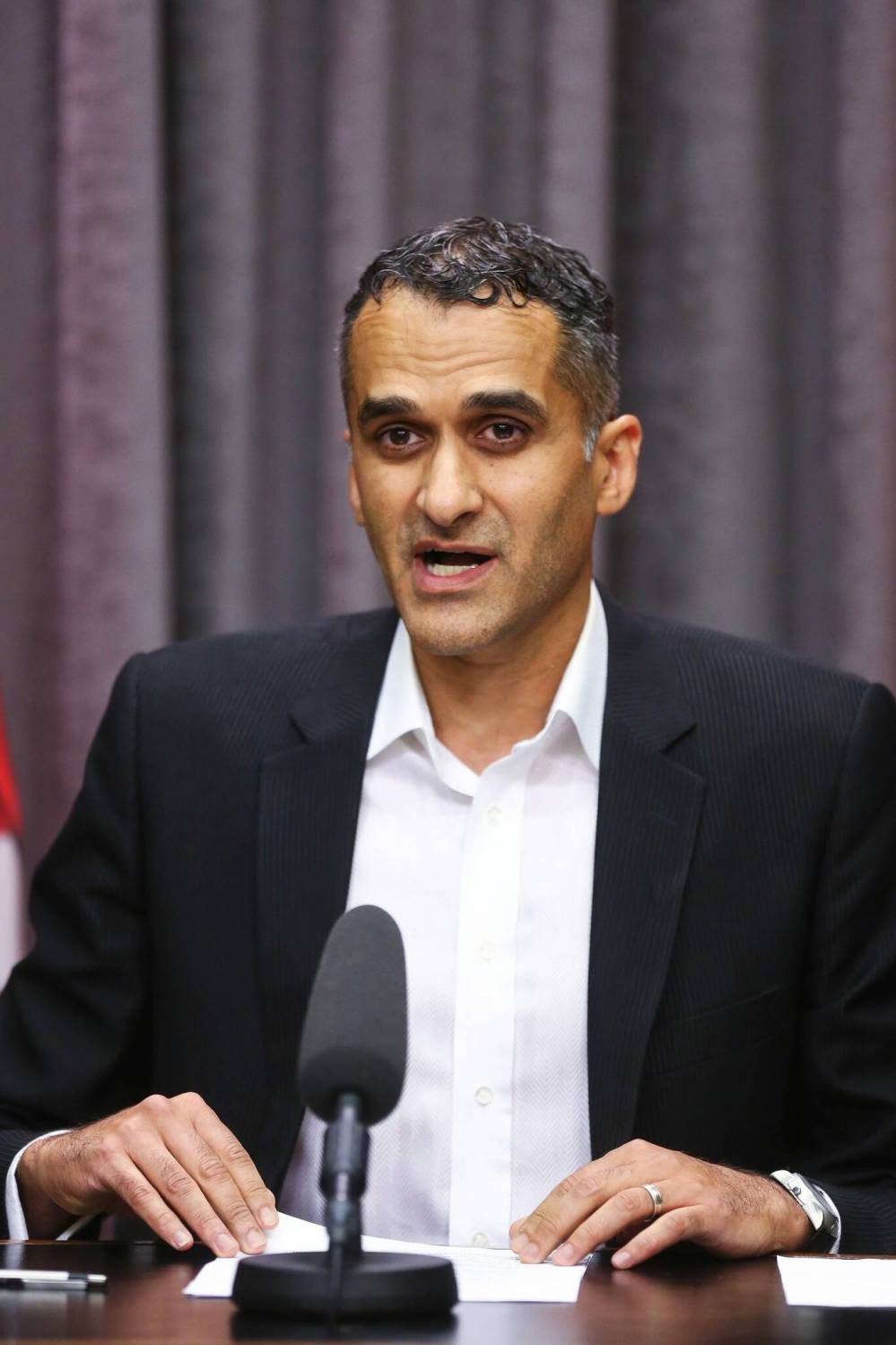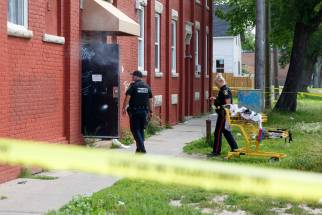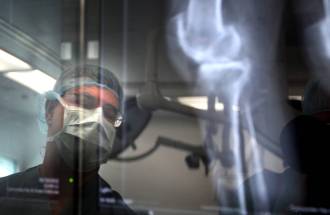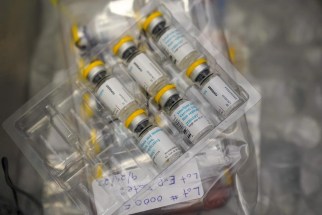Time to put COVID-19 lessons into action
Read this article for free:
or
Already have an account? Log in here »
To continue reading, please subscribe:
Monthly Digital Subscription
$0 for the first 4 weeks*
- Enjoy unlimited reading on winnipegfreepress.com
- Read the E-Edition, our digital replica newspaper
- Access News Break, our award-winning app
- Play interactive puzzles
*No charge for 4 weeks then price increases to the regular rate of $19.00 plus GST every four weeks. Offer available to new and qualified returning subscribers only. Cancel any time.
Monthly Digital Subscription
$4.75/week*
- Enjoy unlimited reading on winnipegfreepress.com
- Read the E-Edition, our digital replica newspaper
- Access News Break, our award-winning app
- Play interactive puzzles
*Billed as $19 plus GST every four weeks. Cancel any time.
To continue reading, please subscribe:
Add Free Press access to your Brandon Sun subscription for only an additional
$1 for the first 4 weeks*
*Your next subscription payment will increase by $1.00 and you will be charged $16.99 plus GST for four weeks. After four weeks, your payment will increase to $23.99 plus GST every four weeks.
Read unlimited articles for free today:
or
Already have an account? Log in here »
Hey there, time traveller!
This article was published 24/08/2022 (1200 days ago), so information in it may no longer be current.
If the pandemic taught Manitoba anything, now is the opportunity to show it.
Related coverage
• Community resource agencies join forces to offer pop-up monkeypox vax clinic
• Manitoba reports first monkeypox case
• Wastewater monkeypox testing underway across Canada
• Manitoba opens monkeypox vaccination bookings again
• Monkeypox vaccine rollout suspended, province silent on cause
• Tories see no monkeypox, speak no monkeypox
• Province pivots, offers monkeypox vax to high-risk population
This province’s first case of monkeypox, publicly reported last Friday, offers Manitoba the chance to employ the lessons learned from mistakes made during the COVID-19 crisis. Of immediate concern, officials can be more transparent about the spread of monkeypox and the availability of vaccine.
Although there may be a feeling of déjà-vu — here we go again, a virus previously unknown to many people is spreading throughout the world — monkeypox is different from COVID-19 in important ways. COVID-19 is typically transmitted by infectious droplets that travel invisibly through the air, while monkeypox usually spreads through prolonged physical contact with the bodily fluids of an infectious person.
Outbreaks of monkeypox are easier to contain because it doesn’t spread easily and infected people are easier to identify. In other words, monkeypox is not a threat to most Manitobans and won’t require extreme measures such as mass vaccinations, isolation after infection and masks in public places.
Still, there’s good reason many countries, including the United States, have followed the World Health Organization in declaring monkeypox a public health emergency. As of Aug. 4, there were 26,208 monkeypox cases reported across 87 countries. In Canada, as of last Friday, there were 1,168 confirmed cases.
An encouraging aspect of the campaign to halt the spread of monekypox is that, unlike the early days of the COVID-19 pandemic, there are already two effective monkeypox vaccines. That’s the good news. The bad news is that Manitoba officials won’t say whether this province has enough of it.
Manitoba did make doses available on Aug. 8, later than most other provinces, but ran out of appointments that same day. It was three days before appointments resumed, leading some to question whether this province is getting sufficient vaccine from Ottawa.
Dr. Jazz Atwal, deputy chief provincial public health officer, offered scant information during a press conference last Friday. Of particular concern, he wouldn’t detail the number of doses available to Manitobans.
MIKE DEAL / FREE PRESS FILES Deputy chief provincial public health officer Dr. Jazz Atwal
In announcing Manitoba’s first confirmed monkeypox infection, it’s understandable he wouldn’t violate patient confidentiality, but his veil of secrecy and also concealed relevant information that would not have singled out the individual. He wouldn’t say whether the infected person had been vaccinated, or in which area of Manitoba the victim lives, information that is pertinent to Manitobans concerned about possible exposure.
Health authorities should be more open about the availability of monkeypox vaccine and provide responsible information about the people who are infected; they would also be well-advised to launch a public-information campaign about prevention.
In Canada, 99 per cent of reported cases of monkeypox involve men, with a median age of 36. The vast majority had reported intimate contact with other men.
It’s important to get messaging out to gay and bisexual men, but it should be made clear to the general public that monkeypox is not a sexually transmitted disease. Rather, it is spread by close contact with an infected person, clothed or not, gay or not.
The goal of an information campaign should be to educate Manitobans about preventative measures to ensure the public-health risk of monkeypox remains small.
One of the long-haul consequences of the pandemic crisis is a widespread distrust of officialdom’s penchant for secrecy, a distrust built when officials repeatedly refused to share COVID-19 data and halted systems for counting COVID-19 infections even though the pandemic is ongoing. Monkeypox gives Manitoba a chance for a do-over.
This time, officials should offer transparency and complete information. When their personal health may be at stake, Manitobans deserve full disclosure.
History
Updated on Thursday, August 25, 2022 12:49 PM CDT: Typo fixed








